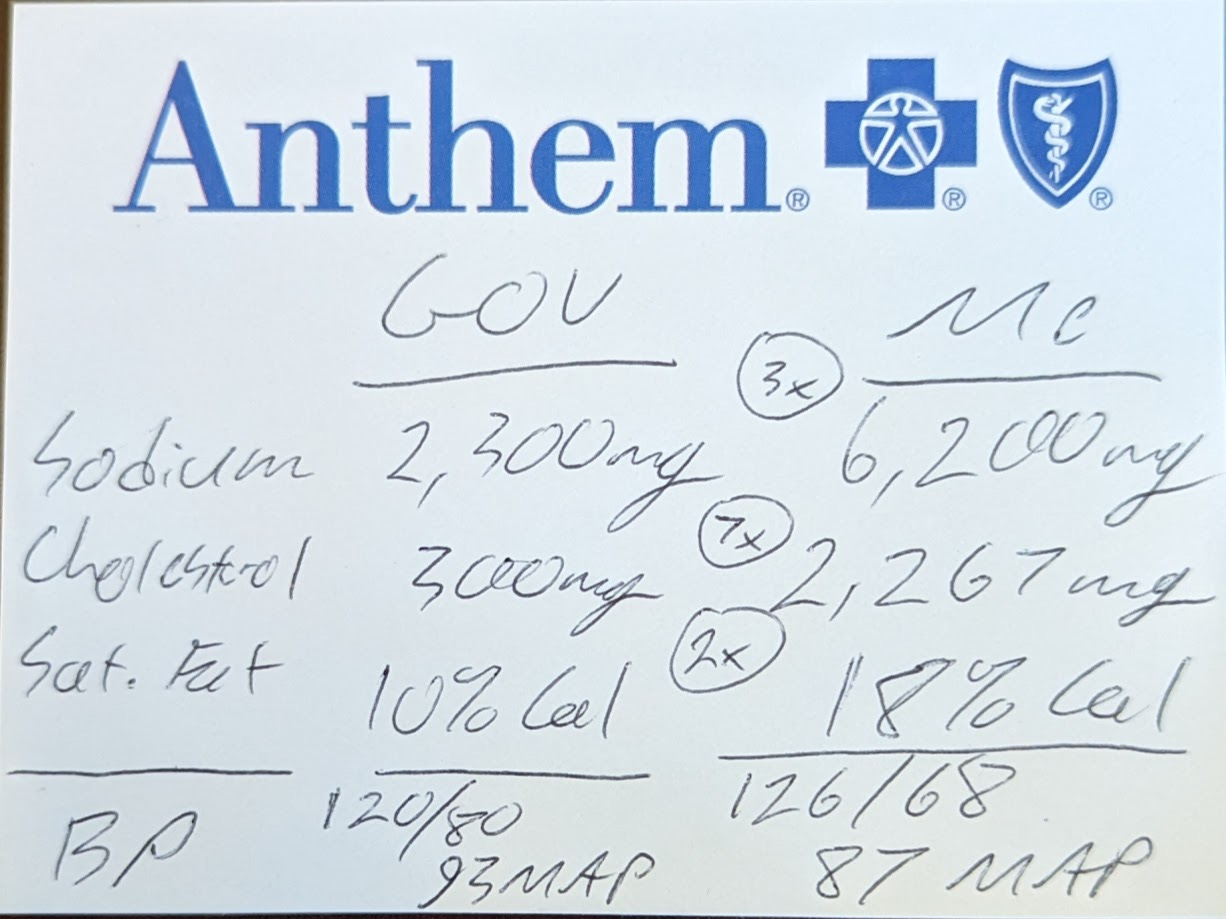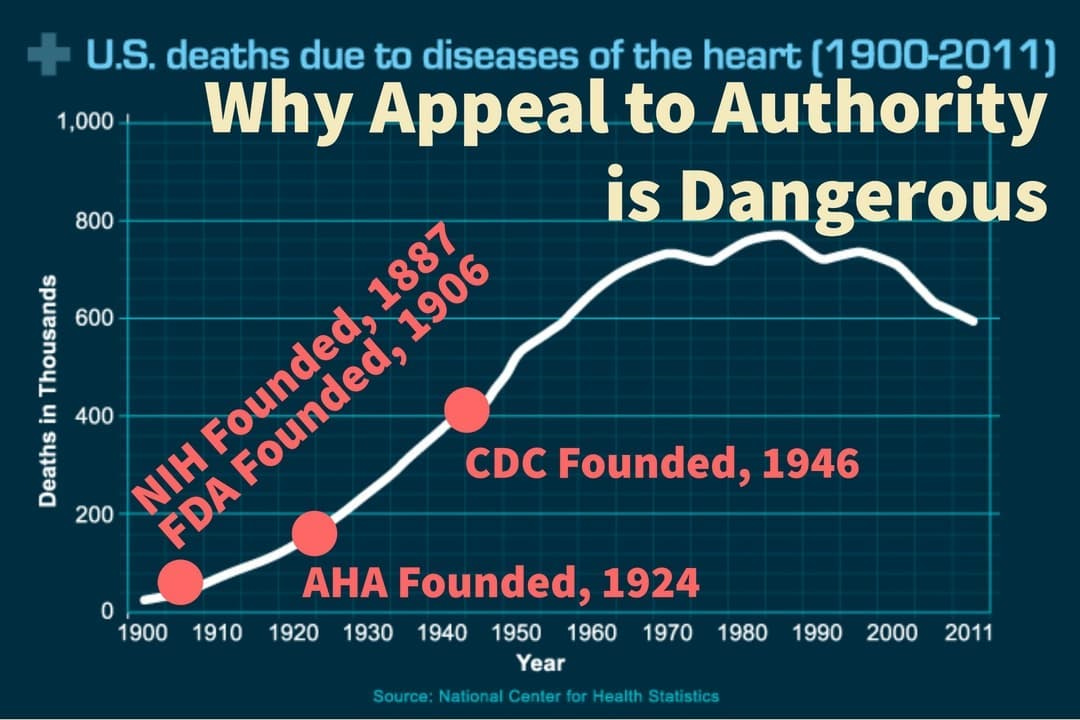A short history of villainizing saturated fat
Teicholz: Endocrinology, Diabetes, and Obesity: dietary guidelines, food policy, polyunsaturated fat, saturated fat
Starting in the 1950s with Ancel Keys and his “Seven Countries Study”, the government recommendation against and war on saturated fat and cholesterol began. This became known as the “diet-heart” or “heart-lipid” hypothesis. In recent years it has, fortunately, fallen under heavy scrutiny — particularly regarding conflicts of interest (such as financial or other special interests).

One of the biggest criticisms of the Seven Countries Study (SCS) is that it examined a non-random sample of countries, an allegedly “cherry-picked” population. Countries with high intakes of saturated fat — such as Germany, Switzerland, and France — were excluded from the study.
From Teicholz article:
“Ultimately, the principal limitation of the SCS data was that they could only show an association, not a cause-and-effect relationship. The results of the SCS have never been independently analyzed, and most subsequent studies using similar approaches have failed to confirm its conclusions....”
Conflict started in with Framingham Heart Study which found “no relationship” between incidence of coronary heart disease and diet. We should not that correlation does not imply causation — as implied by many publications suggesting “linked or related” issues. However, in order for causation to exist, there must be correlation as well.
The Framingham study leader did not publicly announce their findings until 1992 even though the study concluded in 1960. This is what we call “publication bias.” In a dietary context, it’s very hard to get pro-meat, pro-saturated-fat, pro-cholesterol, or other “non-standard plant-based narrative” research published. Some of this has to do with special interests of board members at organizations who are blatantly anti-meat (e.g. WHO and Harvard) and some of it has to do with who is funding a given project and has a vested interest in the results.
Since 1948 the American Heart Association (AHA) received $1.7 million (or $20 million in today’s dollars) from Procter and Gamble (the makers of Crisco vegetable oil) which resulted in “propelling what was a small group into a national organization” according to AHA’s own official history. This is clearly a financial conflict of interest.
Multiple reassessments have shown that while reducing dietary saturated fat intake does lower blood cholesterol, the changes do not correspond to lower risk of cardiovascular disease (ref., ref., ref., ref.).
As recently as 2020, the United States Dietary Guidelines Advisory Committee (DGAC) has continued to be lead by “numerous intellectual, financial, and even religious conflicts of interest.” The most recent review excluded 88% of the evidence; evidence which did not support the association between saturated fats and heart disease.
Teicholz concludes,
“The observed resistance against considering this new science by successive DGACs can potentially be seen as reflecting longstanding biases in the field and the influence of vested interests. Until the recent science on saturated fats is incorporated into the U.S. Dietary Guidelines, the policy on this topic cannot be seen as evidence-based.”
Teicholz, Nina. A short history of saturated fat: the making and unmaking of a scientific consensus. Current Opinion in Endocrinology & Diabetes and Obesity 30(1):p 65-71, February 2023. | DOI: 10.1097/MED.0000000000000791
Claims demonizing saturated fat, cholesterol, and red meat / animal products are usually all tied together in a whack-a-mole type of argument. So that we can stay focused on saturated fat, let’s point out a few things regarding cholesterol:
80% of the body’s cholesterol is made by the liver and intestines, with only about 20% coming from dietary sources (ref.).
20% of the cholesterol in your body is stored in your brain (ref.), which probably means it’s an important molecule.
Cholesterol is required by your body to synthesize (create) Vitamin D from UVB radiation (ref.).
Low levels of cholesterol have been linked to acts of violence and suicide (ref., ref., ref., ref.). Do note that there is conflicting research in this area and that this is only a “correlation”, not a cause — e.g. it may be fanning the flame, but an unlikely origin (ref.).
Cholesterol is required for your brain, memory, and learning development (ref.).
Now, let’s get back to the topic at hand — saturated fat. Just for fun, in December 2023, I fired up Cronometer to compare my (dietary) cholesterol, sodium, and saturated fat intakes to the government recommendations.
You can see that my average intakes (over one week) were several multiples of what the US DAC recommends; ranging from 2x - 7x. So, we can roughly estimate that my dietary risk factor for heart disease (per the US guidelines) is approximately 4x.
However, my blood pressure (small sample, n=2, taken by a professional at a blood drive) was lower than average. How can that be? We’re not talking about a little more or a little less, we’re talking about a 4x risk factor here!
This is where case studies become really powerful. You can argue that I may have a certain bias or vested interest in “proving my point”, but the claims against red meat, eggs, saturated fat, and cholesterol don’t add up — certainly not at scale.
Language around red meat being carcinogenic is often misleading and abused (ref.). For example, there are only four classifications in the IARC system — carcinogenic (asbestos, processed meat, cigarettes), probably carcinogenic (red meat), possibly carcinogenic, and not classified.
However, for the sake of argument, let’s assume that red meat is like a cigarette, and that every egg you eat increases your risk of premature death by 7-8% as some sources suggest (ref., ref.).
For the past 4 years, every single day, I’ve eating about 2 lbs. of red meat and 6-12 eggs, plus or minus some fish and other odds and ends. Using my above post-it-note metrics, I’ve had at least a 4x risk factor, every day, for almost 4 years. That is neither a small effect or duration.
We’re not talking about a publicity stunt or 1-week experiment to make a click-bait YouTube video where we do something extreme for a short duration, just to say we did it. For example:
Different sneakers won’t make you ball like Jordan.
The plant-based protein powders that sponsored Game Changers won’t make you look like Arnold in his prime.
Fasting for a day or week, doesn’t mean you can live forever on air and sunshine.
By all government accounts then, I should be well past dead. But that’s not what’s happening. This website is full of documented official and unofficial physical achievements and milestones that I’ve blown out of the water in my mid-30s; specifically over the past year.
Moreover, my point isn’t that I’ve got it all figured out, or that you should take my word — or anyone else’s — as gospel. You should take it at face value. You should stay curious, investigate, and experiment on your own because US Dietary Guidelines have clearly failed us (ref.).



